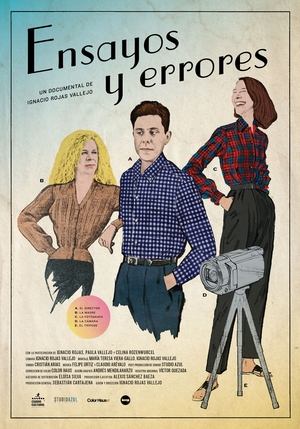

Life for Sale(2009)
Can you imagine a water market? A market where owners of water stock would buy and sell, while others would profit on its price without needing it? What would life be like if all of the planet’s water resources, superficial or subterranean, the waters of rivers, lakes and glaciers, belonged to the private sector? ‘Life For Sale’ examines the biggest water market in the world, set up in Chile.
Movie: Life for Sale

Life for Sale
HomePage
Overview
Can you imagine a water market? A market where owners of water stock would buy and sell, while others would profit on its price without needing it? What would life be like if all of the planet’s water resources, superficial or subterranean, the waters of rivers, lakes and glaciers, belonged to the private sector? ‘Life For Sale’ examines the biggest water market in the world, set up in Chile.
Release Date
2009-12-25
Average
0
Rating:
0.0 startsTagline
Genres
Languages:
Keywords
Similar Movies
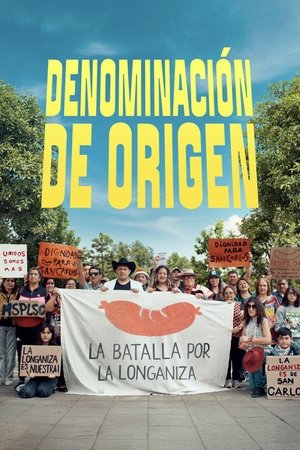 0.0
0.0Designation of Origin(es)
The small town of San Carlos suffers an atrocious injustice: the neighboring city of Chillán snatches from them the prize for the "Best Longaniza in Chile". Faced with this blatant theft, a group of people from San Carlos organizes a powerful social movement, which aims to obtain the precious "Denomination of Origin" for their longaniza sausages, and thus repair the damage and recover the dignity of their beloved town.
 0.0
0.0Todos tienen algo Desierto(es)
Documentary-essay short film about a inner/outter trip to the flowery desert in the north of Chile. A student film by Gabriel Lizama AKA Liz Taylor.
 0.0
0.0Sons of Wood(es)
Don Luis Valdez is a luthier of traditional music instruments, who embarks on the task of teaching a group of inmates from the "Santiago 1" prison (Chile), to build a guitar.
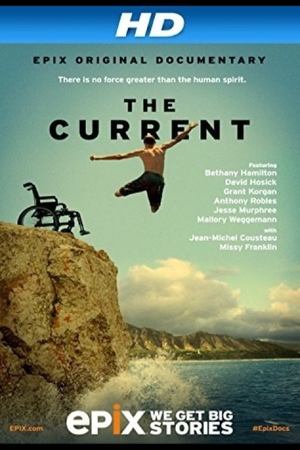 6.4
6.4The Current: Explore the Healing Powers of the Ocean(en)
The Current tells the story of individuals from all walks of life that have faced incredible obstacles, found the drive to overcome their disabilities, and have through water sports become real everyday heroes. - Bethany Hamilton, Missy Franklin, Mallory Weggemann, Anthony Robles, Jesse Murphree
 0.0
0.0Stone Wound(es)
The marks of the violence of the Chilean state, against its own compatriots. Flicker Film. 35mm B & W Still Photography. Silent.
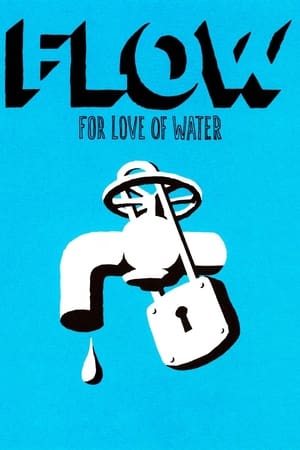 6.5
6.5Flow: For Love of Water(en)
From both local and global perspectives, this documentary examines the harsh realities behind the mounting water crisis. Learn how politics, pollution and human rights are intertwined in this important issue that affects every being on Earth. With water drying up around the world and the future of human lives at stake, the film urges a call to arms before more of our most precious natural resource evaporates.
 0.0
0.0El apagón: Aquí vive gente(es)
“El Apagón: Aquí Vive Gente” is a documentary directed by Bad Bunny and Blanca Graulau. This 23-minute film explores the socio-economic challenges in Puerto Rico, focusing on the effects of power outages and gentrification driven by the real estate and energy sectors. Through visuals and personal stories, the documentary highlights the experiences of Puerto Rican communities facing these issues.
 6.1
6.1Serengeti Shall Not Die(de)
The film tells of the beginnings of the Serengeti National Park in Tanzania. At the end of the 1950s, the Tanzanian National Park Administration wanted to fence in the protected area around the Ngorongoro Crater. Bernhard and Michael Grzimek were invited by the national park administration in 1957 to get a precise picture of the animal migrations and to provide the national park administration with the values they needed for their project. Using a new counting method with two airplanes, the Grzimeks found out that the migration of the herds was different than assumed.
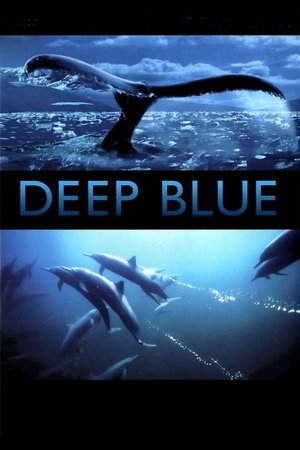 6.8
6.8Deep Blue(en)
Deep Blue is a major documentary feature film shot by the BBC Natural History Unit. An epic cinematic rollercoaster ride for all ages, Deep Blue uses amazing footage to tell us the story of our oceans and the life they support.
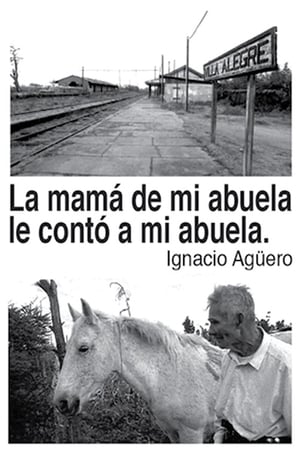 0.0
0.0My Grandmother's Mother Told My Grandmother(es)
Gathered by a theater company, a small town in Chile called Villa Alegre, looks deep into its origins and myths to tell their own history through a play.
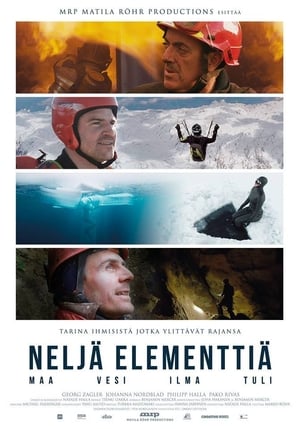 5.0
5.0Life in Four Elements(fi)
A journey into four classical elements through the four main characters of the film. The main characters in the movie represent each of their own elements.
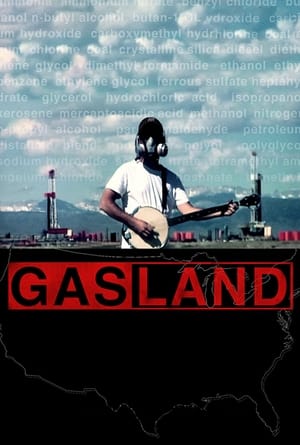 7.1
7.1Gasland(en)
It is happening all across America-rural landowners wake up one day to find a lucrative offer from an energy company wanting to lease their property. Reason? The company hopes to tap into a reservoir dubbed the "Saudi Arabia of natural gas." Halliburton developed a way to get the gas out of the ground-a hydraulic drilling process called "fracking"-and suddenly America finds itself on the precipice of becoming an energy superpower.
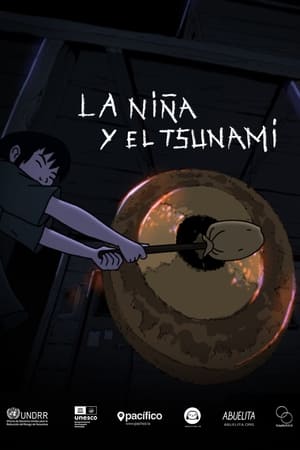 4.0
4.0The Girl and The Tsunami(es)
February 2010. On a remote island in the Pacific Ocean called Juan Fernández, everyone slept in town. But a 12-year-old girl felt a tremor and warned of imminent danger.
 6.0
6.0Corporate Accountability(es)
Images of Argentinian companies and factories in the first light of day, seen from the inside of a car, while the director reads out documents in voiceover that reveals the collusion of the same concerns in the military dictatorship’s terror.
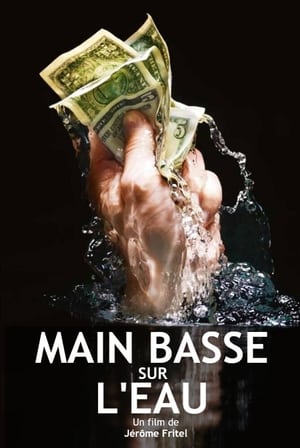 7.4
7.4Lords of Water(fr)
They call it ’blue gold.’ Around the world, demand for water is exploding. By 2050, at least one in four will live in a country suffering from water shortages - creating ideal conditions for a new market. Goldman Sachs, HSBC, UBS, Allianz, Deutsche Bank, BNP. Banks, investment funds and hedge funds are all rushing to invest billions of euros in anything related to water. A real monopoly of water has begun. From California to Australia, from New York to London via Marseille, we investigate the financialization of water. New power relations are being established and access to water is being threatened. It’s a battle taking place on many fronts: ideological, political, environmental, and of course, economic. The fate of nearly 10 billion inhabitants around the world depends on its outcome.
Variaciones Espectrales(es)
Documentary inspired in the life and work of Chilean musician and engineer José Vicente Asuar, worldly known for his work in developing electroacoustic music, being the creator of the first musical computer in Latin America, today abandoned in a country house outside the city. The reunion of Asuar with this artifact creates a lost story that reveals the history of a essential character of our sounding biography.
 0.0
0.0Water and the Dream of the Engineers(en)
Documentary where rich social history frames a spirited debate on the development of water infrastructure throughout the USA.
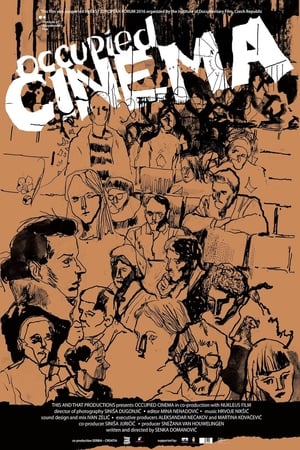 8.0
8.0Occupied Cinema(sr)
The "Occupied Cinema" follows young activists and events surrounding the takeover of "Zvezda", one of 14 extinguished cinemas from the privatized company "Beograd Film".

